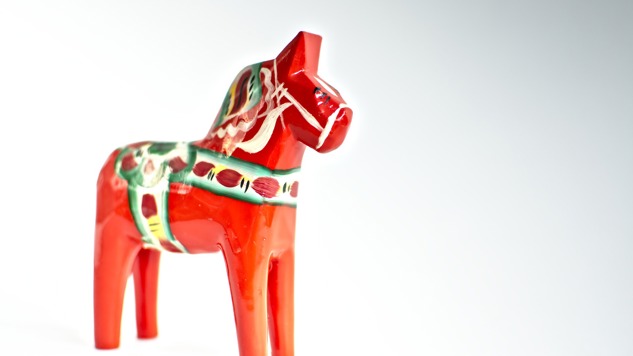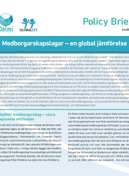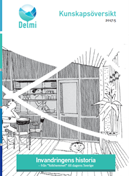This Delmi report compares how the rules for citizenship have been formulated and developed over time in the Scandinavian countries. The focus is on rules for citizenship from an immigration and integration policy perspective. This means, among other things, that questions about naturalization, ie. acquisition of citizenship after application, becomes important. Questions about citizenship for children born in the country to parents with foreign citizenship are also studied, as well as questions about dual or multiple citizenship. The study also highlights the importance of citizenship for democratic participation.
Some overall conclusions and recommendations
- Swedish citizenship regulation has been liberalized for a long time in contrast to the other countries in Scandinavia, especially Denmark. Differences in the influence of right-wing populist parties in the three Scandinavian countries are important for understanding developments.
- Citizenship is of democratic importance, giving the individual the opportunity for political influence and security. It facilitates human mobility and to circular migration, and has a symbolic value that the individual is fully involved in society.
- The simpler the rules for becoming a citizen, the greater the openness of the political community. Conversely, this means that the more demands that are made, the more closed the society is to new immigrants.
About the author of the report
The report, Swedish citizenship: regulation and change in the Scandinavian perspective (2015: 5), is written by Mikael Spång, Ph.D. in political science and active at Malmö University.
Picture by mammela from Pixabay.



